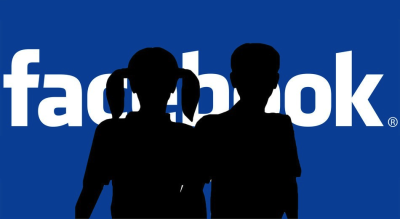 Facebook recently loosened its privacy restrictions for underaged users, allowing those between the ages of aged 13 and 18 to have full control over who they interact with. Prior to last week, teens were only allowed to share posts and pictures with friends and mutual friends. Now they’ll have the option to display their profiles publicly. And Facebook has also enabled a follow feature which makes their posts appear in others’ news feeds.
Facebook recently loosened its privacy restrictions for underaged users, allowing those between the ages of aged 13 and 18 to have full control over who they interact with. Prior to last week, teens were only allowed to share posts and pictures with friends and mutual friends. Now they’ll have the option to display their profiles publicly. And Facebook has also enabled a follow feature which makes their posts appear in others’ news feeds.
Facebook’s reasoning is that teen users are the most social media savvy demographic and are already experts at controlling their shared content. However, safety is still an issue. According to Facebook: “We take the safety of teens very seriously, so they will see an extra reminder before they can share publicly,” Facebook noted. “When teens choose ‘Public’ in the audience selector, they’ll see a reminder that the post can be seen by anyone, not just people they know, with an option to change the post’s privacy. And if they choose to continue posting publicly, they will get an additional reminder.”
Teenagers may not always exercise the best judgement, particularly as stories of brutal bullying among middle school and high school students seem to make national headlines on a weekly basis. So will these new, more relaxed privacy rules put even more youth at risk by creating more opportunities for online bullying?

Facebook may be aware of the risk, but they also know that in loosening privacy restrictions, they can further target teens for advertising purposes. And add to their bottom line.
“It’s all about monetization and being where the public dialogue is,” said Jeff Chester, executive director of the Center for Digital Democracy, a group that lobbies against marketing to children. “To the extent that Facebook encourages people to put everything out there, it’s incredibly attractive to Facebook’s advertisers.”
With open Facebook profiles, marketers are able to see exactly what teenagers like and want. Teens tend to voice their opinion willingingly, making marketers’ jobs that much easier. According to The New York Times, Facebook, which boasts 1.2 billion users worldwide, is locked in a battle with Twitter and Google to attract consumer advertisers like food, phone andclothing companies. Those brands want to reach people as they engage in passionate public conversation about sports, television, news and live events.
How do you feel about open profiles for underage Facebook users? And how much flak will Facebook catch if this move really does increase cyber bullying?


